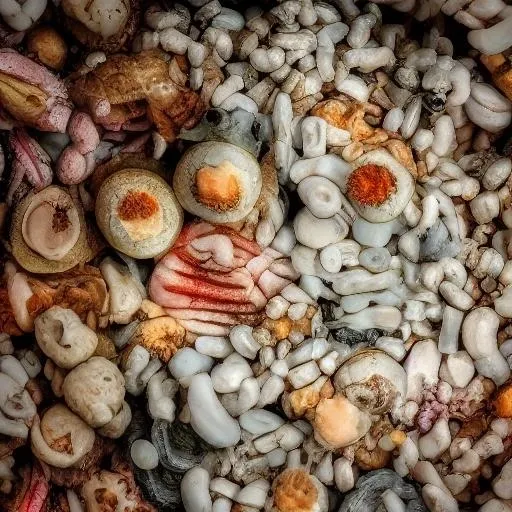The Impact of Diet on Gut Microbiota and Overall Health

The gut microbiome, comprised of trillions of microorganisms residing in the digestive tract, plays a crucial role in maintaining overall health and well-being. In recent years, research has increasingly highlighted the intricate relationship between the gut microbiota and various aspects of human health, including digestion, immune function, metabolism, and even mental health. One of the key factors influencing the diversity and balance of gut microbiota is diet. In this comprehensive guide, we will delve into the importance of gut health, explore the intricate interplay between diet and the gut microbiome, and provide practical tips for optimizing gut health through dietary choices.
Understanding Gut Microbiota
The gut microbiota refers to the diverse community of microorganisms, including bacteria, viruses, fungi, and archaea, that inhabit the gastrointestinal tract. This complex ecosystem performs a wide range of functions essential for human health, such as aiding in digestion and nutrient absorption, regulating metabolism, modulating immune responses, and protecting against harmful pathogens. The composition of the gut microbiota is influenced by various factors, including genetics, lifestyle, environment, and notably, diet.
The Importance of Gut Health
A balanced and diverse gut microbiome is crucial for maintaining optimal health. Imbalances or disruptions in the gut microbiota, known as dysbiosis, have been linked to a myriad of health issues, including gastrointestinal disorders (e.g., irritable bowel syndrome, inflammatory bowel disease), metabolic disorders (e.g., obesity, type 2 diabetes), autoimmune diseases, allergies, and even mental health disorders (e.g., depression, anxiety). Therefore, nurturing a healthy gut microbiome is paramount for overall well-being.
Diet and Gut Microbiota
Diet plays a fundamental role in shaping the composition and function of the gut microbiota. Different dietary components, such as fiber, prebiotics, probiotics, polyphenols, and fats, can have profound effects on the diversity and abundance of gut microbes. For example, fiber-rich foods, including fruits, vegetables, whole grains, legumes, and nuts, serve as fuel for beneficial gut bacteria, promoting their growth and proliferation. Prebiotics, which are non-digestible fibers that selectively stimulate the growth and activity of beneficial bacteria, can be found in foods like garlic, onions, leeks, asparagus, and bananas.
Probiotics, on the other hand, are live microorganisms that confer health benefits when consumed in adequate amounts. Fermented foods such as yogurt, kefir, kimchi, sauerkraut, and kombucha are rich sources of probiotics and can help replenish and diversify the gut microbiota. Additionally, polyphenol-rich foods like berries, green tea, and dark chocolate possess antioxidant and anti-inflammatory properties that support gut health by modulating the composition of gut microbiota.
Conversely, diets high in processed foods, sugar, trans fats, and artificial additives can negatively impact the gut microbiota, promoting the growth of harmful bacteria and contributing to dysbiosis. Excessive consumption of red meat and high-fat dairy products has also been associated with unfavorable changes in the gut microbiome, potentially increasing the risk of chronic diseases.
Practical Tips for Promoting Gut Health Through Diet:
- Eat a diverse range of plant-based foods: Incorporate a variety of fruits, vegetables, whole grains, legumes, nuts, and seeds into your diet to provide ample fiber and nutrients for beneficial gut bacteria.
- Include fermented foods: Regularly consume fermented foods like yogurt, kefir, kimchi, sauerkraut, and kombucha to introduce beneficial probiotic strains into your gut microbiome.
- Consume prebiotic-rich foods: Incorporate prebiotic foods such as garlic, onions, leeks, asparagus, bananas, and whole grains to nourish beneficial gut bacteria.
- Limit processed foods and added sugars: Minimize intake of processed foods, sugary snacks, sugary beverages, and artificial additives, which can disrupt the balance of gut microbiota and promote inflammation.
- Choose healthy fats: Opt for sources of healthy fats such as avocados, olive oil, nuts, seeds, and fatty fish, while moderating intake of trans fats.
- Stay hydrated: Drink plenty of water throughout the day to support digestion, nutrient absorption, and overall gut health.
- Practice mindful eating: Slow down, chew food thoroughly, and savor meals mindfully to aid digestion and optimize nutrient absorption.
- Consider probiotic supplements: In consultation with a healthcare professional, consider taking probiotic supplements to support gut health, particularly after antibiotic treatment or during periods of gastrointestinal distress.
Conclusion
In conclusion, the gut microbiome plays a pivotal role in maintaining overall health, and diet is a powerful modulator of gut microbiota composition and function. By adopting a balanced and diverse diet rich in fiber, prebiotics, probiotics, and nutrient-dense foods, individuals can promote the growth of beneficial gut bacteria, support digestive health, boost immune function, and reduce the risk of various chronic diseases. By prioritizing gut health through dietary choices, we can pave the way for a healthier and happier life.
This comprehensive guide has explored the importance of gut health, the influence of diet on gut microbiota, and practical tips for optimizing gut health through dietary choices. By incorporating these recommendations into your daily routine, you can nourish your gut microbiome and reap the numerous benefits it offers for your overall health and well-being.
Sources:
1. Zhang P. Influence of Foods and Nutrition on the Gut Microbiome and Implications for Intestinal Health. Int J Mol Sci. 2022 Aug 24;23(17):9588. doi: 10.3390/ijms23179588. PMID: 36076980; PMCID: PMC9455721.
2. Impact of diet on human gut microbiome and disease risk – ScienceDirect
3. Bourdeau-Julien, I., Castonguay-Paradis, S., Rochefort, G. et al. The diet rapidly and differentially affects the gut microbiota and host lipid mediators in a healthy population. Microbiome 11, 26 (2023). https://doi.org/10.1186/s40168-023-01469-2
4. Conlon MA, Bird AR. The Impact of Diet and Lifestyle on Gut Microbiota and Human Health. Nutrients. 2015; 7(1):17-44. https://doi.org/10.3390/nu7010017
5. an L, Xia Y, Wang Y, Han D, Liu Y, Li J, Fu J, Wang L, Gan Z, Liu B, Fu J, Zhu C, Wu Z, Zhao J, Han H, Wu H, He Y, Tang Y, Zhang Q, Wang Y, Zhang F, Zong X, Yin J, Zhou X, Yang X, Wang J, Yin Y, Ren W. Gut microbiota bridges dietary nutrients and host immunity. Sci China Life Sci. 2023 Nov;66(11):2466-2514. doi: 10.1007/s11427-023-2346-1. Epub 2023 Jun 5. PMID: 37286860; PMCID: PMC10247344.
“At Dynamic Wellness Solutions, we believe in empowering you with the knowledge and tools to make informed choices that resonate with your unique well-being journey. Our commitment to transparency ensures that you navigate the intricate world of nutrition with clarity, embracing the transformative power of honest and truthful information. Join us on this dynamic path to wellness, where your health and vitality are at the heart of every decision we make together.”


